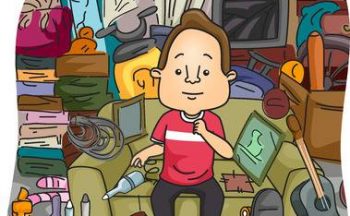 March 2021
March 2021
Some people are comfortable with clutter. Hoarding is a more extreme situation where people have difficulty parting with possessions. It results in a cluttered living space, distress and impairment all of which can pose health and safety concerns.
In high-rise and condominium buildings excess clutter can lead to sanitary and safety problems affecting an entire building. It can lead to pest infestation, flooding and fire. These are matters affecting every building resident.
Where there is an indication of hoarding a condo corporation must take steps to assist a resident unable to clean up a unit on their own. Citing governing documents and requiring the resident to deal with the problem is unlikely to be effective.
More extensive hoarding-related problems may include mould and other contaminants which may spread if not quickly addressed. Restoration services such as RespondPlus are available to quickly make living spaces habitable while dealing with health and safety risks before they worsen.
Signs of hoarding
- Unwillingness to allow entry to their unit for regular maintenance or other purposes
- Cluttered balcony and/or storage areas
- Strong odours
- Rarely leaving the unit
- No visitors
- Frequent food deliveries
- Pests including bed bugs
- Neighbour complaints, concerns or suspicions
A better approach, consistent with the Ontario Human Rights Code, is to establish a process for identifying and addressing hoarding problems.
Inspect the unit
Reasonable notice is required per section 19 of the Condo Act.
Identify the problem
Assess the degree of clutter or other problems evident.
Determine urgency of problem
The type of action will depend on the degree of clutter or problem. It may be necessary to contact the fire department, health department or other agencies.
Create a plan for resolution
Forcing a resident to deal with the problem may be unrealistic. A better approach may be to have a written agreement on what needs to be done and how management will assist – including any related chargebacks. Cleaning or restoration services may be necessary to deal with immediate concerns. Regular follow up and further action may be required to avoid relapse.






